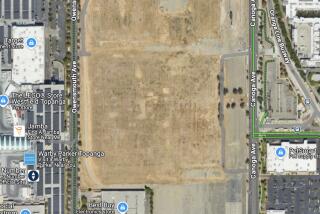State Says Subdivision Site Poses No Health Risk
The Oxnard Dunes subdivision, built on a former dump for oil-field waste, poses no significant health risk to residents, the final report from the state Department of Health Services says.
Ending an investigation that began in 1987, the report confirms the state’s decision to remove the site from its toxic-cleanup list.
“There are some contaminants at Oxnard Dunes,” department spokesman Richard Varenchik said Friday. “We don’t feel it’s serious enough to clean up.”
The report should assure residents that it is safe to eat vegetables grown in their soil and for their children to play outside, Varenchik said.
A suit filed in 1986 by 175 residents of the 57-home subdivision is still scheduled for trial on Aug. 5. The suit seeks $3.5 billion in damages from a list of defendants including Oxnard Shores Co., the developer; the Humacid Co., which operated the oil-waste dump; descendants of Dominick McGrath, the property’s original owner, and the city of Oxnard.
In the suit, residents maintain that the wastes in the subdivision’s soil are hazardous and that the defendants did not inform home buyers of the risks.
Although the state report deems the site safe, it assigns responsibility for the original dump or the building of houses on it. Oxnard Shores Co. is 40% responsible; and the Humacid Co., Fritz Roy Huntsinger, Carl Frederick Huntsinger and Malcolm MacLeod are 40% responsible, and John F. McGrath, a descendant of Dominick McGrath, is 20% responsible, the report says.
The state spent about $1.2 million investigating the site and will attempt to recover the cost from the responsible parties, Varenchik said.
McGrath said he did not think anything was wrong with the soil on the property and doesn’t assume any responsibility for houses being built there.
A copy of the report is available at the Oxnard Library, Varenchik said.
More to Read
Sign up for Essential California
The most important California stories and recommendations in your inbox every morning.
You may occasionally receive promotional content from the Los Angeles Times.










